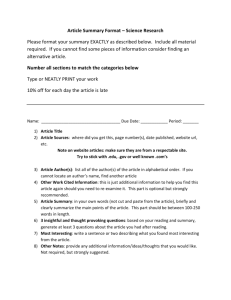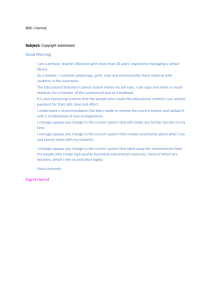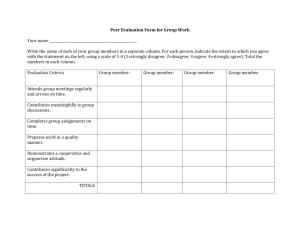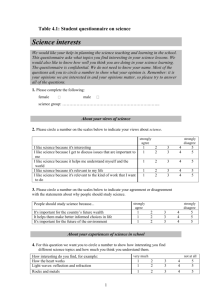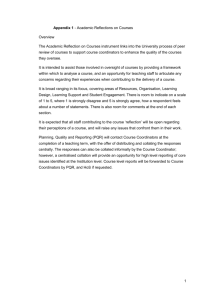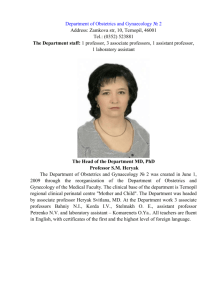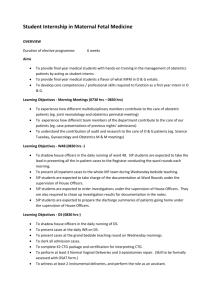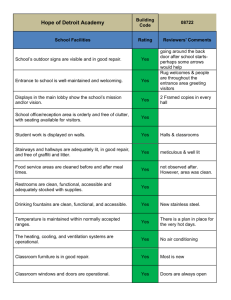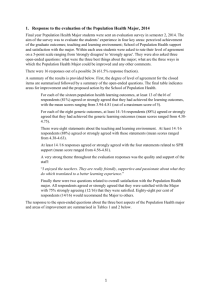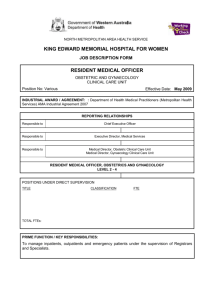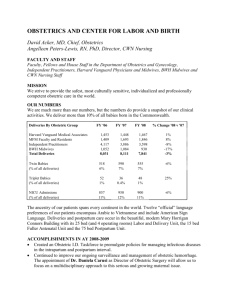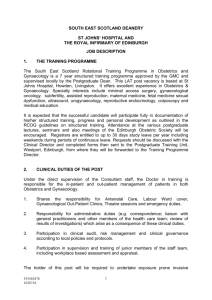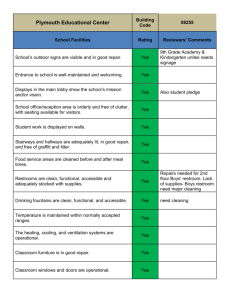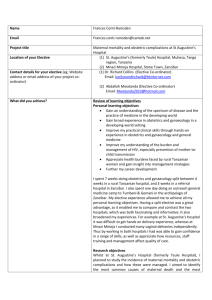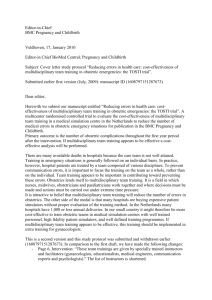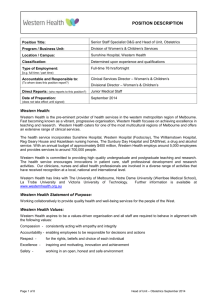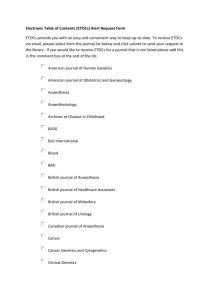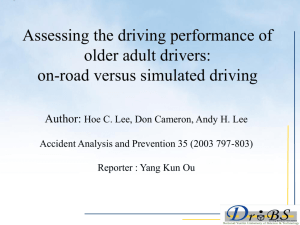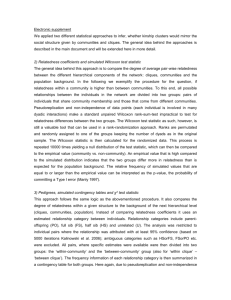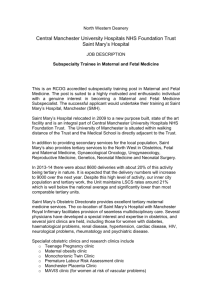phen Obs emergencies simulation
advertisement
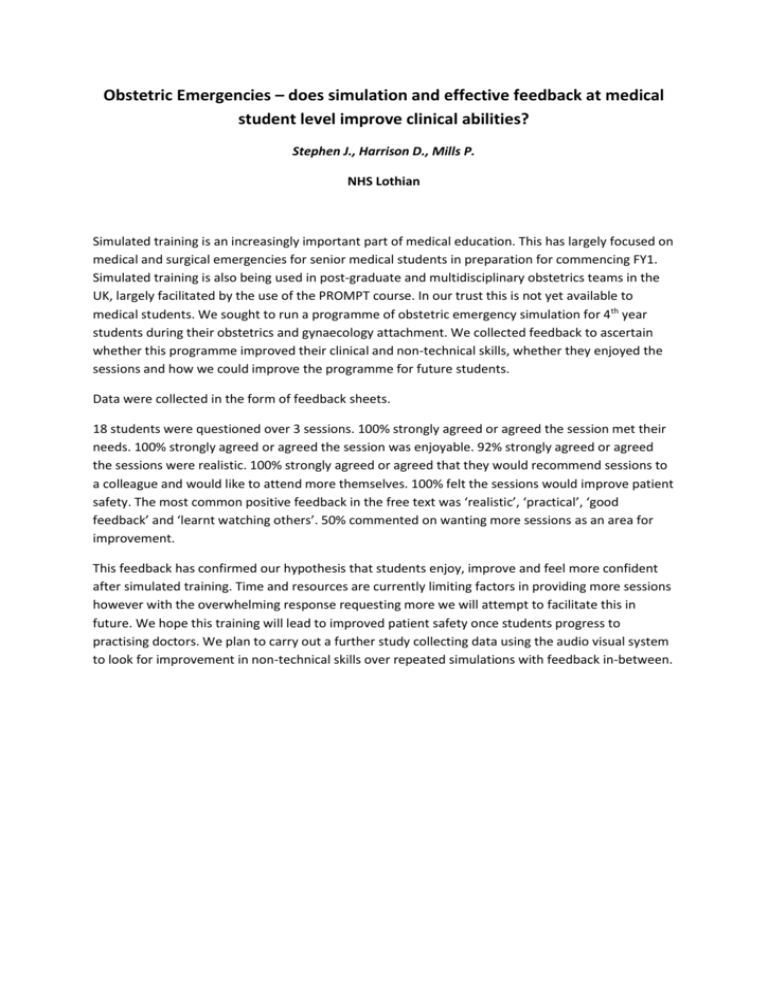
Obstetric Emergencies – does simulation and effective feedback at medical student level improve clinical abilities? Stephen J., Harrison D., Mills P. NHS Lothian Simulated training is an increasingly important part of medical education. This has largely focused on medical and surgical emergencies for senior medical students in preparation for commencing FY1. Simulated training is also being used in post-graduate and multidisciplinary obstetrics teams in the UK, largely facilitated by the use of the PROMPT course. In our trust this is not yet available to medical students. We sought to run a programme of obstetric emergency simulation for 4th year students during their obstetrics and gynaecology attachment. We collected feedback to ascertain whether this programme improved their clinical and non-technical skills, whether they enjoyed the sessions and how we could improve the programme for future students. Data were collected in the form of feedback sheets. 18 students were questioned over 3 sessions. 100% strongly agreed or agreed the session met their needs. 100% strongly agreed or agreed the session was enjoyable. 92% strongly agreed or agreed the sessions were realistic. 100% strongly agreed or agreed that they would recommend sessions to a colleague and would like to attend more themselves. 100% felt the sessions would improve patient safety. The most common positive feedback in the free text was ‘realistic’, ‘practical’, ‘good feedback’ and ‘learnt watching others’. 50% commented on wanting more sessions as an area for improvement. This feedback has confirmed our hypothesis that students enjoy, improve and feel more confident after simulated training. Time and resources are currently limiting factors in providing more sessions however with the overwhelming response requesting more we will attempt to facilitate this in future. We hope this training will lead to improved patient safety once students progress to practising doctors. We plan to carry out a further study collecting data using the audio visual system to look for improvement in non-technical skills over repeated simulations with feedback in-between.
